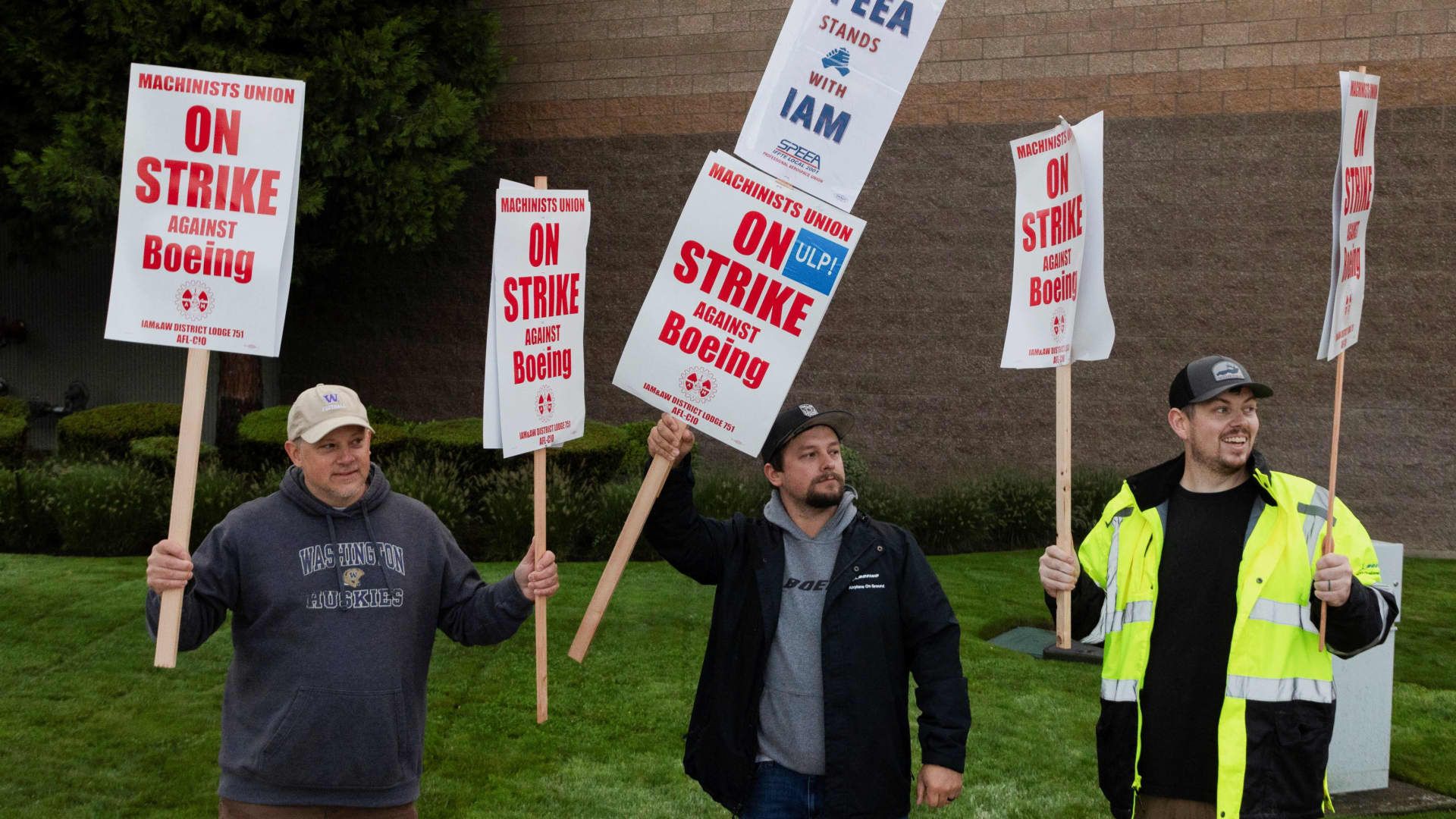Union members hold picket signs during a news conference following the counting of votes on the union contract at the main hall of the IAM District 751 union in Seattle, Washington, U.S., Thursday, Sept. 12, 2024.
M. Scott Brauer | Bloomberg | Getty Images
Boeing Chief Financial Officer Brian West said the labor strike that began shortly after midnight Friday will hurt aircraft deliveries and “jeopardize” the company's recovery, hours after factory workers overwhelmingly rejected a new labor contract and walked off the job.
West said the financial impact of the strike will depend on how long it lasts, but it will affect production of the company's best-selling planes, including its blockbuster 737 Max, which is produced in Renton, Washington.
“The strike will impact production, deliveries and our operations and will jeopardize our recovery,” West said at a Morgan Stanley conference on Friday. “Therefore, our immediate focus is to concentrate on actions to conserve cash, and we will do so.”
Boeing factory workers gather on a picket line during the first day of a strike near the entrance of a production plant in Renton, Washington, U.S., September 13, 2024.
By Matt Mills McKenight | Reuters
He said Boeing's priority is to return to the negotiating table and “reach an agreement that is good for our people, their families, our community.”
Boeing shares fell sharply on Friday after Moody's put all of Boeing's credit ratings on review for a downgrade and Fitch Ratings said a prolonged strike could put Boeing at risk of a downgrade, moves that could increase borrowing costs for a manufacturer already saddled with mounting debt.
Boeing shares were down nearly 4% as of 1:20 p.m. ET on Friday.
West declined to say whether the company could hit the production pace of 38 737 Max jets per month by the end of the year.
Jefferies aerospace analyst Sheila Kahyaoglu had previously estimated that a 30-day strike could represent a $1.5 billion hit for Boeing.
West said Boeing's immediate focus would be “on actions to conserve cash,” adding that new CEO Kelly Ortberg would work to restore relations with the union.
Boeing and the International Association of Machinists and Aerospace Workers had presented a tentative labor agreement on Sunday that included 25% wage increases over four years and other improvements to health and retirement benefits. But workers had been asking for 40% raises and argued they did not cover rising costs of living.
Workers in the Seattle and Oregon areas voted 94.6 percent to reject the proposal and 96 percent voted in favor of a strike.
They left work after midnight on Friday.
Boeing's machinists last went on strike in 2008, a work stoppage that lasted nearly two months.
The potential production halt comes at a time when the manufacturer is facing a series of problems. It has struggled to ramp up production and recover its reputation following safety crises.
In January, a burst door stopper on a nearly new Boeing 737 Max 9 prompted the Federal Aviation Administration to bar Boeing from increasing production of its Max jets and the FAA to step up inspections at production plants until the regulator is satisfied with its safety and quality procedures there.
An FAA spokeswoman told CNBC on Friday that the agency will keep its inspectors at Boeing facilities during the strike.










